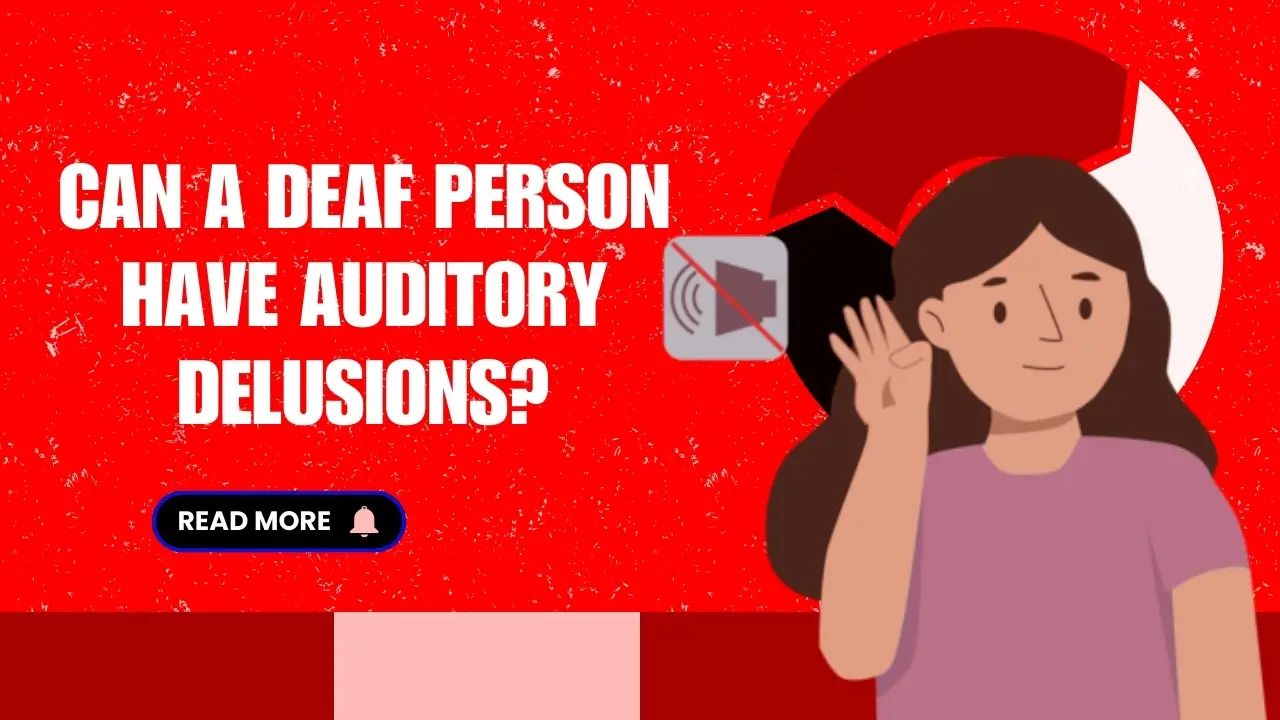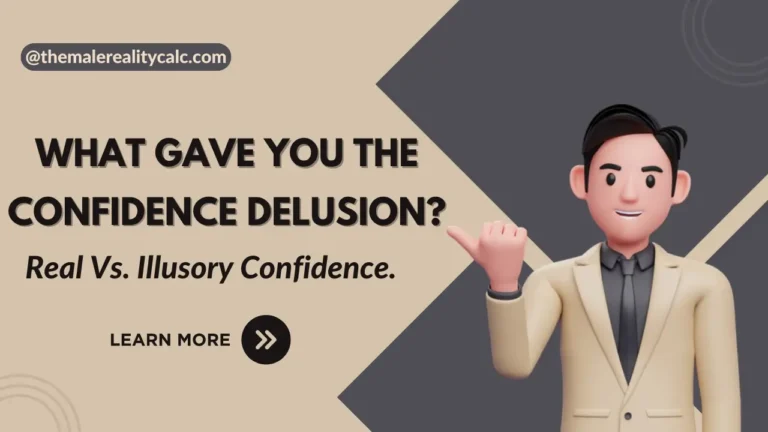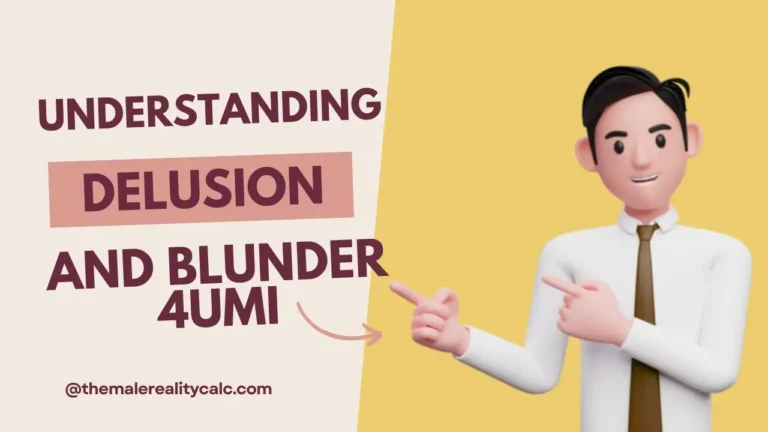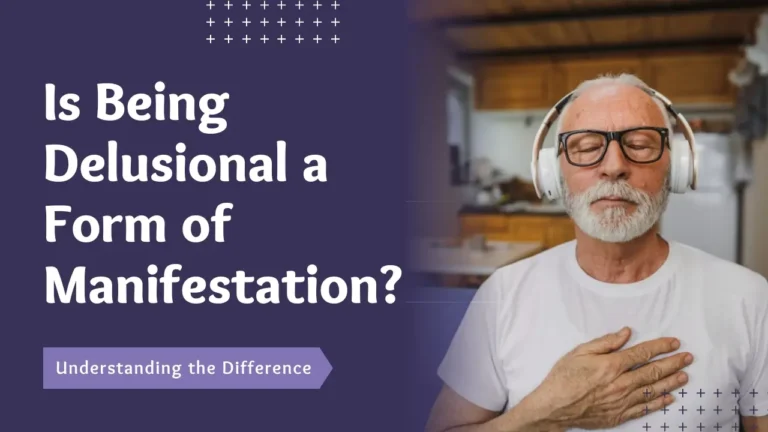Can a Deaf Person Have Auditory Delusions? Perception & Experiences

Can a Deaf Person Have Auditory Delusions? Auditory delusions are perceptual distortions involving hearing something not present in the external environment. They are different from auditory hallucinations, typically associated with sound, and can be recognized as unreal by the person experiencing them. Auditory delusions, on the other hand, are firmly believed to be true and real by the person who hears them.
Can deaf people experience auditory delusions? It’s a debated question. Here, we discuss the evidence, arguments, and experiences regarding this issue. We’ll cover the nature, factors, and cultural considerations in assessing and managing auditory delusions in the deaf community.
Do Deaf People Experience Auditory Delusions?
The debate around auditory delusions in deaf individuals stems from the fact that deafness is not a homogeneous condition. There are different degrees and types of hearing loss and various causes and onset times. Some deaf people are born without functional hearing, while others lose hearing later in life due to illness, injury, or aging.
Don’t forget to read more about Effects Of Male Delusion
Therefore, it is difficult to generalize or assume that all deaf people have the same perceptual and cognitive experiences. Some researchers and clinicians have argued that auditory delusions are possible in deaf individuals, especially those who once had some degree of hearing or who have some residual hearing.
They have cited evidence from case reports and studies documenting instances of deaf people reporting hearing voices or sounds that are not externally present.
| Study | Findings |
| Langdon et al. (2009) | Studied four deaf patients with psychotic disorders. They heard voices in English, Arabic, or sign language, or noises like whistling or humming. The researchers suggested these experiences might relate to prior exposure to sound or speech, or use of hearing aids or cochlear implants. |
| Atkinson et al. (2006) | Analyzed 201 deaf patients with schizophrenia. 30% reported auditory hallucinations, and 14% reported auditory delusions. Those with auditory delusions often had some hearing before 16, used hearing aids, and had later psychosis onset. |
However, other researchers and clinicians have challenged the validity and reliability of these findings. They have pointed out the limitations and biases of the methods and measures used to assess auditory delusions in deaf individuals. They have also questioned the interpretation and definition of these experiences and whether they can be truly considered auditory.
Understanding the Nature of Auditory Delusions in Deaf Individuals
One of the main challenges in understanding auditory delusions in deaf individuals is distinguishing them from auditory hallucinations. Auditory hallucinations are more commonly associated with sound and hearing.
Don’t forget to read more about Treatment Of Delusion
They are usually defined as the perception of sound or speech that is not externally present but that can be recognized as unreal or imaginary by the person experiencing them. Both hearing and deaf individuals can experience auditory hallucinations, varying in content, frequency, intensity, and impact.
| Aspect | Auditory Hallucinations | Auditory Delusions |
|---|---|---|
| Definition | Perception of sound or speech not externally present, recognized as unreal or imaginary by the individual | Belief in hearing something not externally present, considered real and true by the individual |
| Association | Associated with sound and hearing | Associated with psychotic disorders (e.g., schizophrenia, bipolar disorder) |
| Challenge for Deaf Individuals | Difficulty in distinguishing from auditory delusions | Difficulty due to different sensory/cognitive representations of hearing |
| Representation | Primarily auditory representation | May involve sensory or cognitive representations beyond sound/speech |
In contrast, auditory delusions are the belief that one hears something that is not externally present but is considered real and true by the person experiencing it. Auditory delusions are usually associated with psychotic disorders, such as schizophrenia, bipolar disorder, or delusional disorder. They can also vary in content, frequency, intensity, and impact.
However, It can be difficult to distinguish between different definitions and categories related to hearing and speech, especially for deaf individuals. People who are deaf may not experience sound and speech in the same way and may not rely on hearing as their primary mode of communication.
Don’t forget to read more about What Is Female Delusion?
Therefore, auditory delusions experienced by people who are deaf or hard of hearing may not necessarily involve sound or speech but rather other sensory or cognitive representations associated with “hearing.”
alternative forms of auditory delusions
Some of the possible alternative forms of auditory delusions in deaf individuals are:
Internal Signing
Internal signing refers to the perception of signing gestures internally, without any external source or stimulus. It may be experienced as self-talk or communication from another person or entity.
The sign language and culture of the deaf individual can influence the clarity, complexity, and meaning of internal signing.
Visual Representations of Speech
Visual representations of speech refer to the perception of mental images of spoken words or lip movements without any external source or stimulus. It may be experienced as a form of inner speech or communication from another person or entity.
The spoken language and culture of the deaf individual can influence the accuracy, coherence, and intelligibility of visual representations of speech.
Don’t forget to read more about How Do You Manage To Stay So Positive Delusion
Non-Auditory Sensations
Non-auditory sensations refer to the perception of other sensory distortions or sensations associated with “hearing,” such as tactile, visual, olfactory, or gustatory sensations.
It may be experienced as synesthesia or communication from another person or entity. The sensory and cognitive abilities of the deaf individual can influence the intensity, quality, and significance of non-auditory sensations.
Factors Influencing Auditory Delusions in Deaf Individuals
The occurrence and nature of auditory delusions in deaf individuals may be influenced by several factors, such as:
Pre-Existing Hearing
Pre-existing hearing refers to the presence or absence of functional hearing before the onset of deafness or psychosis. This factor may affect the development and content of auditory delusions, as it may provide a basis for the representation and interpretation of sound and speech.
Deaf individuals who once had some degree of hearing may be more likely to experience auditory delusions than those who never had any hearing, as they may have some memory or residual perception of sound or speech.
Severity of Deafness
The severity of deafness refers to the degree and type of hearing loss that affects the deaf individual. This factor may influence the occurrence and nature of auditory delusions, as it may determine the extent and quality of the auditory input and output.
You can also read more about Common Reasons Why Couples Break Up
Deaf individuals who have some residual hearing may be more likely to experience auditory delusions than those who have no hearing at all, as they may have some access or exposure to sound or speech.
However, the type of hearing loss may also matter, as some forms of hearing loss may impair the perception or processing of sound or speech more than others.
Mental Health Conditions
Mental health conditions refer to the presence or absence of underlying mental health conditions that may contribute to the development and maintenance of auditory delusions. This factor may affect the occurrence and nature of auditory delusions, as it may alter the cognitive and emotional functioning of the deaf individual.
Deaf individuals who have psychotic disorders, such as schizophrenia, bipolar disorder, or delusional disorder, may be more likely to experience auditory delusions than those who do not, as they may have impaired reality testing, reasoning, or insight.
You can also read more about Common Reasons Why Couples Break Up
However, other mental health conditions, such as depression, anxiety, or trauma, may also influence the content and impact of auditory delusions, as they may affect the mood, motivation, or coping of the deaf individual.

Importance of Cultural Sensitivity and Communication
One of the main challenges in evaluating and managing auditory delusions in deaf individuals is the significance of cultural sensitivity and communication. Deafness is not only a deficiency in hearing but also a cultural and linguistic identity.
The deaf community is diverse and lively, with its values, norms, and practices. Deaf individuals use a variety of communication modes and styles, such as sign languages, spoken languages, or written languages.
Therefore, it is crucial to show respect and understanding towards the cultural and linguistic background of the deaf individual when identifying and addressing their auditory delusions.
Don’t forget to read more about What Are The Stages Of Delusion?
It is essential to avoid making assumptions or judgments based on hearing norms or stereotypes and to acknowledge and appreciate the individual experiences and preferences of the deaf person.
It is also necessary to seek help from professionals familiar and competent with deaf culture and communication, such as deaf mental health specialists, sign language interpreters, or deaf advocates.
By using culturally sensitive and appropriate communication, the assessment and management of auditory delusions in deaf individuals can be more accurate, effective, and respectful. Moreover, it can help to establish a good rapport and trust between the professional and the deaf person and to facilitate the delivery and acceptance of the diagnosis and treatment.
FAQs About Can a Deaf Person Have Auditory Delusions?
Can deaf people have auditory hallucinations?
Yes, Deaf individuals can experience auditory hallucinations, such as sounds or speech, despite no external presence. These hallucinations may manifest as internal signs, visual representations of speech, or non-auditory sensations.
Why do I have auditory hallucinations?
Auditory hallucinations can occur due to various factors such as mental health conditions, neurological issues, hearing loss, substance use, stress, or trauma. Common conditions associated with auditory hallucinations include schizophrenia, bipolar disorder, and PTSD. Neurological conditions like epilepsy or stroke can also trigger them, along with hearing loss, where the brain compensates for missing sounds.
Can normal people have auditory hallucinations?
Auditory hallucinations can happen to anyone, especially if they use drugs like cannabis, cocaine, amphetamines, or PCP. These substances can change how the brain works and cause someone to hear things that aren’t there.
However, these hallucinations are usually temporary and harmless and do not mean that someone has a mental health problem. People can also have auditory hallucinations when they are falling asleep or waking up. These types of hallucinations are common and harmless and are caused by changes in consciousness.
Why do I hear two voices in my head?
Hearing two voices may indicate auditory hallucinations, potentially linked to mental health conditions like schizophrenia or bipolar disorder. Seeking professional assistance is crucial for diagnosis and support.
Final Words About Can a Deaf Person Have Auditory Delusions?
In conclusion, discussing whether deaf individuals can experience auditory delusions is complex. Some evidence suggests that it is possible, but others question this finding. Factors like previous hearing ability, the level of deafness, and mental health conditions affect whether auditory delusions can occur and their nature.
It is crucial to be culturally sensitive and communicate effectively when assessing and managing auditory delusions in deaf individuals. By recognizing the diversity within the deaf community and using culturally sensitive approaches, professionals can care for them more accurately and respectfully.






